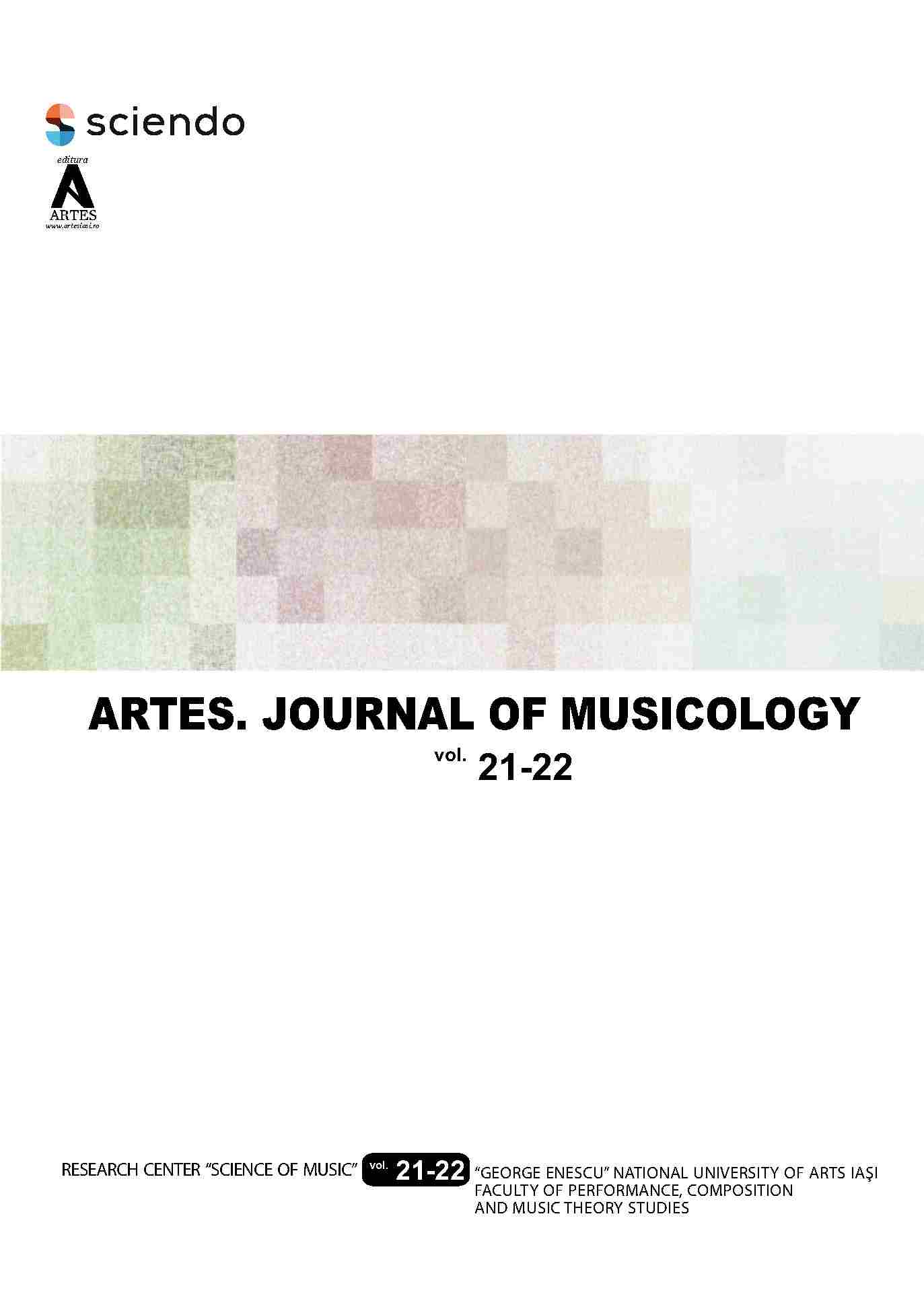Psaltic repertoire, authors and transcribers of Ms. Rom.- Greek 23 Anthologhion from the "Dumitru Stăniloae" Ecumenical Library of the Metropolitan Church of Moldova and Bukovina in Iasi
Psaltic repertoire, authors and transcribers of Ms. Rom.- Greek 23 Anthologhion from the "Dumitru Stăniloae" Ecumenical Library of the Metropolitan Church of Moldova and Bukovina in Iasi
Author(s): Irina Zamfira DănilăSubject(s): Music
Published by: Editura ARTES
Keywords: Romanian-Greek anthology; "Dumitru Stăniloae" Ecumenical Library of the Metropolitan Church of Moldova and Bukovina – Iași; 19th century; Chiril the Monk from the Bisericani Monastery;
Summary/Abstract: The present study concerns the musical repertoire in the Romanian-Greek manuscript inventory number 23 from the ‘Dumitru Stăniloae’ Ecumenical Library of of the Metropolitan Church of Moldavia and Bukovina in Iasi, its authors, and the musical sources these authors used. The musical content of the manuscript is comparatively rich; there are mainly chants from the Holy Liturgy, Vespers and Matins. From the service of the Holy Liturgy, it stands out the group of "extensive" style cherouvika composed by Konstantinos Potopsaltis, translated in Romanian version, less commonly found in the Moldavian manuscripts. Among the chants of the Vespers, the psalm Blessed be the man is noteworthy. The present version belongs to Chiril the Monk from the Bisericani Monastery (Neamt County), who was active in the first half of the nineteenth century. Also prominent in the manuscript is a type of chant belonging to the Matins, the polyeleos. A good word, one such polyeleos, devoted to the feast of the Theotokon, is found in three versions. One of them, authored by Chiril the Monk, is in the third mode, while the other two are in the fourth mode, legetos. The first fourth mode polyeleos can be traced back to a source by Greek composer Chourmouzios the Archivist, but the Romanian author of the musical adaptation is not specified. The second one, in the "abridged", "syntoma" style, was composed by Dimitrie Suceveanu. The fourth polyeleos in the Ms. no. 23, By the River of Babylon is one specific of the Great Lent. This polyeleos is distinct from the pieces that was musically translated by the Romanian composer Nektarios Frimu in the first volume of his Antology (published in 1846). Ms. no. 23 is significant because of its repertoire, but also because it is part of a group of five manuscripts, belonging to different documentary funds, yet each was compiled by the same talented copyist and composer, the monk Chiril from the Bisericani Monastery of Neamt county, as Byzantinologist Alexie Buzera also notes in one of his studies (1998). It must also be mentioned that the musical variants authored by Chiril the Monk were published only fragmentarily.
Journal: Artes. Journal of musicology
- Issue Year: 2020
- Issue No: 22
- Page Range: 312-335
- Page Count: 24
- Language: English

